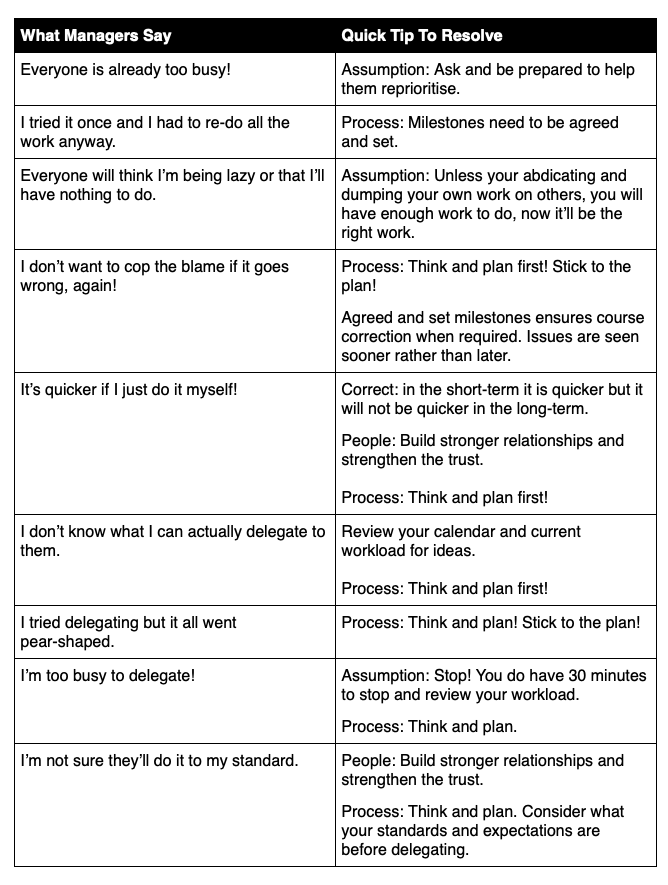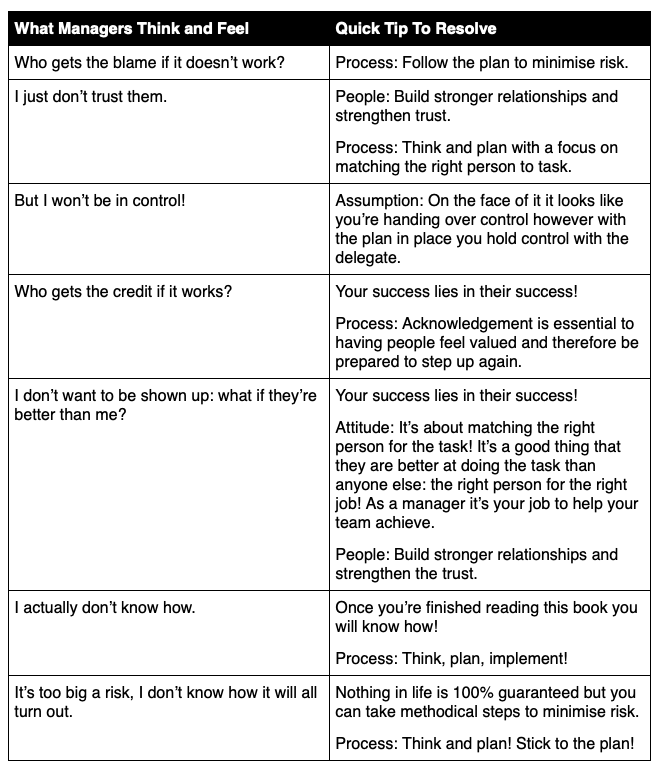In school I was very average academically, sport and socialising had way more appeal! Even when I put effort in my grades were never anything to get excited about. I even failed English in one semester – that hurt! And that contributed greatly to me having to repeat my final year.
I used to fully believe in the saying, “If it was easy, everyone would be doing it.” I thought that was an unequivocal truth. I applied it to many aspects of my life as either a way to step out or to keep my chin up on tough days, especially running my own practice. I’m now six books in and while my English may not be perfect, I know that the saying “If it was easy, everyone would be doing it.” is not totally true. Once I knew how to write a book, to work through the process, book writing became easy. It’s still hard work but knowing a process makes it very easy. The same applies to delegating.
Over the years of working with thousands of managers and leaders, time and again the same barriers to delegating come up. These are very real reasons that need exploring so that delegating becomes your asset for success.
- Everyone is already too busy!
- I’m not sure they’ll do it to my standard.
- It’s quicker if I just do it myself!
- I don’t want to copy the blame if it goes wrong, again!
- I tried delegating but it all went pear-shaped.
- I tried it once and I had to re-do all the work anyway.
- I’m too busy to delegate!
- I don’t know what I can actually delegate to them.
Do any of these resonate with you? It’s quite normal to identify with one or more of these barriers, especially if delegating is new to you or it didn’t work for you in the past. Below are some tips to start shifting the barriers.

- Who gets the blame if it doesn’t work?
- I just don’t trust them.
- It’s too big a risk, I don’t know how it will all turn out.
- I don’t want to be shown up: what if they’re better than me?
- Who gets the credit if it works?
- I actually don’t know how to delegate.
- But I won’t be in control!
This next table suggests tips to help remove the fear, the underlying barriers, to delegating.

It’s critical to understand what you are thinking, feeling and fearing about delegating in order for you to take positive steps towards making delegation work for you. You need to know that acknowledging these is not a weakness; it’s a sign of self-awareness, which is a significant contributor to quality self-leadership. Being able to identify and acknowledge your barriers to delegating gives you essential insights into, and information about, what you can do to delegate more productively and confidently.
Once you work through any barriers you are closer to making delegating much easier. This is fundamental to learning how to delegate, being open to delegating. And once you know how, it’s easy. So it’s not about, “If it was easy, everyone would be doing it”, “it’s easy when you know how!”
I’d love to know your thoughts




